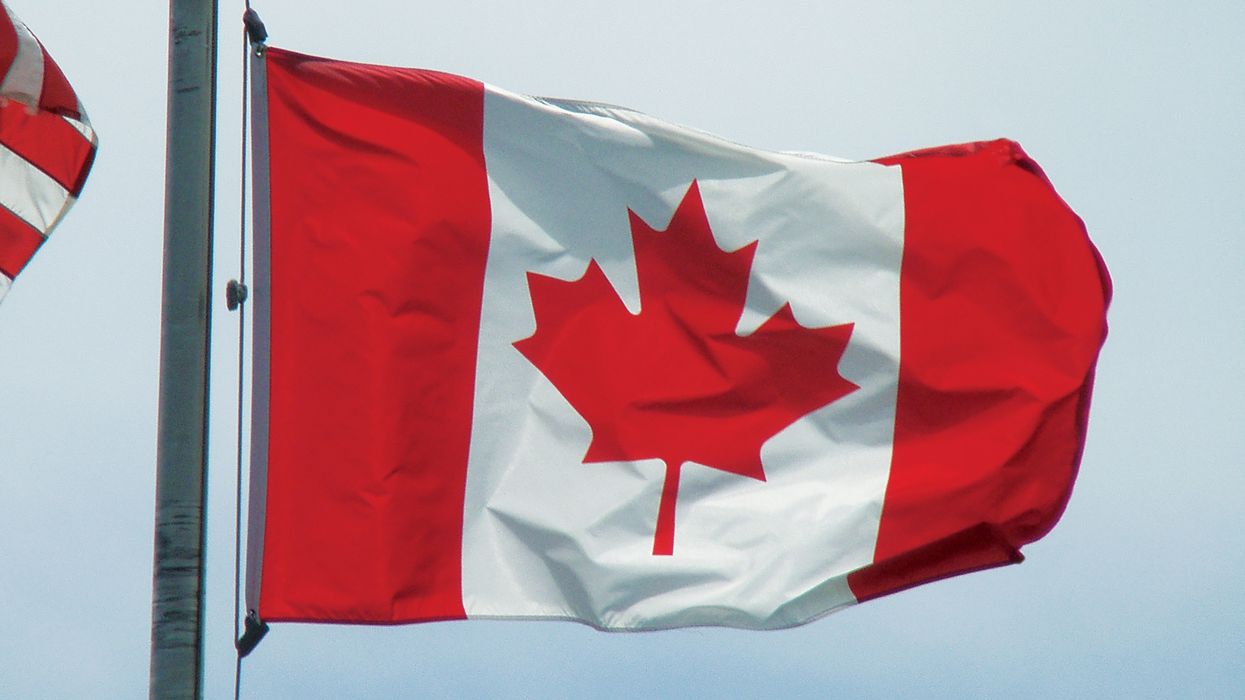Plan ahead for commercial vehicles traveling to Canada
Are you operating into Canada? Be sure to consider the following credential and reporting requirements prior to entry into Canada with your commercial vehicle. Note that some jurisdictions have additional requirements. The International Registry Plan (IRP) jurisdiction directory at www.irponline.org has more information.
Carrier codes
A carrier code is a four-character unique identifier that is assigned by the CBSA to identify a carrier. With the implementation of E-manifest, Advance Commercial Information (ACI), all carriers crossing the border with commercial goods require a carrier code.
Non-bonded or bonded code
To apply for a carrier code, the first step is to determine if you need a non-bonded or bonded code.
Non-bonded highway carrier: A non-bonded highway carrier must have all shipments released at the first point of arrival (FPOA) in Canada. If a non-bonded carrier requires a bond for a single trip, they may apply for a single trip authorization.
Bonded highway carrier: Bonded highway carriers are permitted to transport in-bond goods beyond the FPOA in Canada and between points in Canada. They must post financial security in the amount of $5,000 to $25,000 with the CBSA to cover the certain situations
Highway traffic form
The “Application to Transact Highway Operations with the Canada Border Services Agency” is required to verify applicant’s identities to conduct carrier operations in Canada.
Insurance requirements and filings
Commercial vehicles traveling to Canada are required to have minimum third-party liability and cargo insurance based on the commodity hauled. The only jurisdiction that requires insurance certificates to be filed is British Columbia. Contact the Insurance Corporation of British Columbia (ICBC) for information at www.icbc.com.
Third-party liability coverage
Third-party liability coverage is required as follows:
- General freight — Minimum of $1,000,000
- Dangerous goods — Minimum of $2,000,000
Cargo insurance (for-hire carriers only)
Cargo insurance is required as follows:
- Gross Vehicle Weight (GVW) up to 27,998 lbs/12,700 kg require a minimum of $15,000
- GVW up to 46,296 lbs/21,000 kg require a minimum of $20,000
- GVW up to 81,570 lbs/37,000 kg require a minimum of $27,000
- GVW in excess of 81570 lbs/37,000 kgs require a minimum of $32,000
- Buses
* All funds are in CAD.
Public liability coverage
Public liability coverage is required as follows:
- Passenger Capacity 15 or less — $1,000,000
- Passenger Capacity 16 or more — $ 3,000,000
Vehicle registration
Commercial vehicles traveling into Canada may be required to register. You can register using the IRP or by purchasing trip permits. The requirements and GVW thresholds vary between the jurisdictions.
Importation and transportation of goods (Memorandum D3-1-1)
The CBSA has requirements and administrative policies regarding the reporting and transportation of goods being imported into and moving in-transit through Canada by all modes of transport.
Reporting and control of cargo (Memorandum D3-4-2)
The CBSA has requirements and procedures for reporting and control of cargo arriving in Canada in the services of highway carriers.
Greenhouse Gas Pollution Pricing Act
This fuel charge was new in 2019 and applies to 21 types of fuel and to combustible waste in Alberta, Manitoba, Nunavut, Ontario, Saskatchewan, and Yukon.
Safety registrations
Two provinces, Ontario and Quebec, require U.S.-based carriers to obtain a safety credential prior to operating in the provinces. In Ontario, it’s referred to as the Commercial Vehicle Operator Registration and in Quebec it’s referred to as the Registration Identification Number.
Canada Border Services Agency
Information from the Canada Border Services Agency (CBSA) is available at www.cbsa.gc.ca.




















































